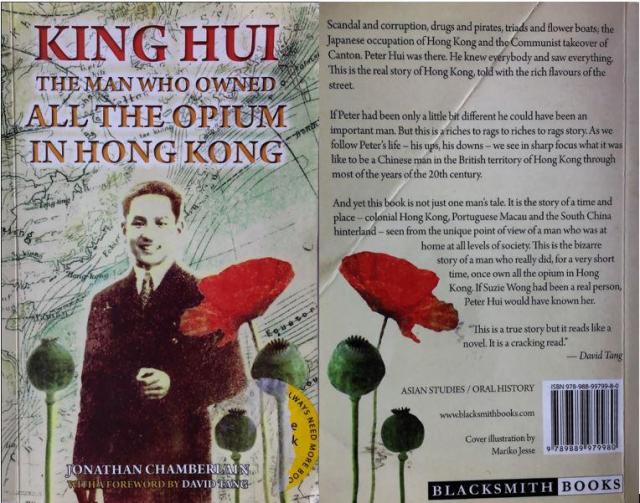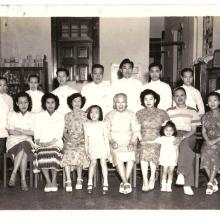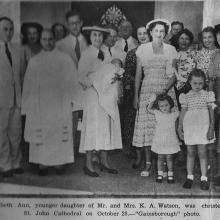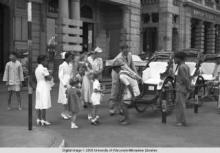This review does not need the catch-all subtitle, “The man who owned all the opium in Hong Kong” as the book is full to the brim with 350 pages of dense and fascinating information of a life that stretches from 1914 till 1993,as told to Jonathan Chamberlain, of which pages 126 to 196, record all his adventures under the Japanese occupation.
David Tang wrote the introduction and said “Peter Hui or King Hui as he was nicknamed at Queens College, emerges from these pages as a man of rare and not always enviable, qualities – whose life twisted and turned through all levels of Hong Kong society from the top banking families to the lowest street porter. In these pages we meet gamblers and playboys, pirates and triads, bankers and conmen – and, of course, the girls who entertained in the dance halls of Hong Kong, the pleasure houses of Macau and the flower boats of Canton.
What makes this book particularly inviting is the descriptive background of Hui’s life. This is an intimate history of the city. We catch rare glimpses of ordinary lives in the streets of Hong Kong. We are soaked in the attitudes and behaviour of the local Chinese people whose lives would otherwise have remained hidden from our gaze.”
This is a direct quotation from the book on the fall of Hong Kong – “Actually Hong Kong fell very quickly. The sound of explosions stopped. We waited. Most of the people hated the British but they also hated the Japanese. Maybe the British were better. Maybe the Japanese were better. Who can say? On the one hand the Japanese were Asians like us. On the other hand, they were famous for being cruel. The massacre at Nanjing was still a recent memory. What would they do to us?”
After the war Peter Hui went to Canton to visit his wife whenever he could. He comments (page 268) “It was very different now under the Communists. There was very little entertainment. There was not much business. Everybody was much poorer. But there were many good things too. I respected the discipline of the Communist officials. The streets were clean. People did their work and then went home. Everybody lived a quiet life.
At that time I was very impressed by the basic ideas of communism. Give what you can and take only what you need. We were all convinced that this was the way forward. But the truth of the matter is that people are selfish. They will work for themselves but not for others. Not everybody is willing to work hard. If I work harder than you but we get paid the same, naturally I will not be so happy. This is the fundamental problem that no amount of philosophy or propaganda can hide. It is a sad fact.”
It is felt that, in a few sentences, the failure of Communism is summed up.
The reviewer would be interested by the comments of Chinese people on the basic truth of the facts in this book. Some elements of the Chinese character are very difficult to put into perspective as personified by Peter Hui, such as, the overwhelming need to maintain Face is so great that financial ruin is often the result.
Everyone who is interested in Hong Kong should read this book.




